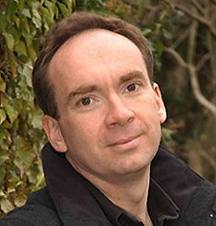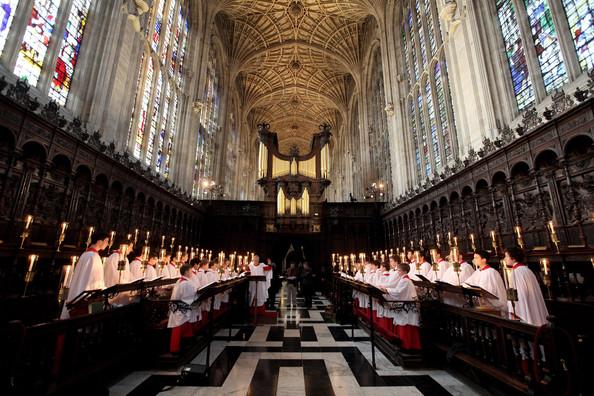Kings Place’s Bach Unwrapped season invites audiences to come at the composer from new and unexpected angles. Bach gets arranged, adapted and re-orchestrated, and his legacy is showcased in works from three centuries. Occasionally however he also gets played straight – and it doesn’t get much straighter or more authentic than the Academy of Ancient Music and the Choir of King’s College Cambridge performing the St Matthew Passion.
Hall One is a lovely, intimate concert hall with a malleable acoustic and good sightlines, but what it definitely isn’t is a church. Bach’s Passions have the flexibility of true genius, finding different and endlessly apt personalities whether staged in warehouses, performed outdoors, sung by a few professionals or massed amateur forces, but even so, far from Passiontide the music always has to work that bit harder in a secular setting – especially for the meditative piety of the St Matthew, which lacks the dramatic immediacy of the St John.
James Gilchrist’s Evangelist is still the best in town
Rather than work against the music however and attempt to whip up a Gardiner-esque frenzy of activity, Stephen Cleobury led his musicians in a poised rendition which, if it didn’t ever exactly lean back in its seat, certainly wasn’t rushing to get anywhere either. It was an approach that relied entirely on James Gilchrist’s Evangelist – honed over so many years, and still the best in town. Gilchrist (pictured below) may have to work a little harder at the top these days, but the beauty of his phrasing and tone colour are beyond improvement. Then there’s the joy he takes in the music around him, singing along with chorales before remembering himself and stopping, and alive to every musical detail from his colleagues.
 There was a lot of mutual admiration and interplay among the players of the Academy of Ancient Music too, as the small, double-orchestra forces rivalled and duetted. Bach as epic works well, but this was chamber music that was nimble and nuanced. Obbligato moments for flutes (a heady “Buss und Reu”), oboe, two different solo violins and of course the gut-tearing viola da gamba for “Komm susses Kreuz” were highlights.
There was a lot of mutual admiration and interplay among the players of the Academy of Ancient Music too, as the small, double-orchestra forces rivalled and duetted. Bach as epic works well, but this was chamber music that was nimble and nuanced. Obbligato moments for flutes (a heady “Buss und Reu”), oboe, two different solo violins and of course the gut-tearing viola da gamba for “Komm susses Kreuz” were highlights.
Soprano and alto soloists Joanne Lunn and James Laing led the drama of the evening with some moving singing. Lunn has a fullness of tone often missing in early music sopranos, which anchored even the Pollyanna-ish “Ich will dir mein Herze” in grown-up emotion, and revelled in the sustained legato of “Aus liebe”. Laing is androgynous-pure of tone – a foil to Bach’s more athletic writing for ensemble voices – but while his stillness worked well, the same couldn’t be said for baritone Stephan Loges, whose impassive delivery verged on boredom for much of the evening, even in that most glorious of musical arrivals, “Mache dich”.
The King’s choristers did what small boys do, and did it very well, but it would have been nice to hear a greater range of textural variation and colouring for Bach’s idée fixe of a chorale that returns in so many different guises. They were joined at either end of Part I by children from the West London Free School, offering a forthright clarity to these punctuating sections. The adult choral scholars were crisp and well-drilled, stepping forward for some strong cameos as Judas, Peter and the High Priest.
This Passion may have been out of season, but there’s something in the beautiful austerity of Bach’s writing that does lend itself so well to winter. A cold evening spent in the company of the AAM and King’s Choir may have been penitential, but it was in no way a penance.














Comments
Add comment